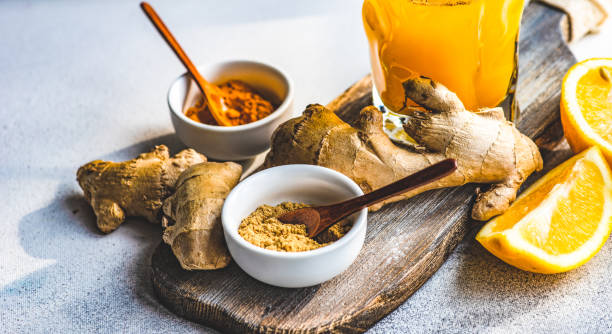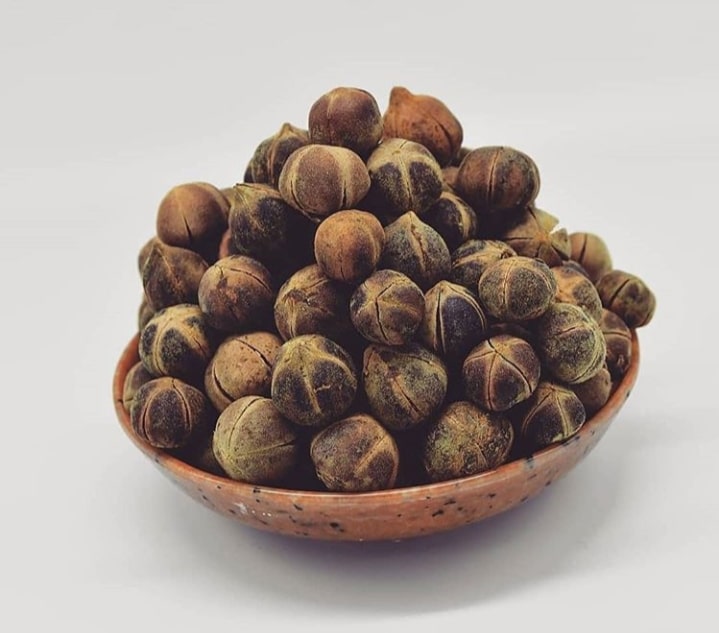Ginger and turmeric are two of the most extensively studied ingredients in herbal medicine. Interestingly, both have been used for centuries in treating various ailments ranging from chronic inflammation and fatigue to migraines. Yes, the potential health benefits of turmeric and ginger are amazing.
Both have been used to help relieve pain. They can be consumed fresh, dry, ground, or taken as a tea or drink and added to various dishes. They’re also available in supplement form.
Ginger is a flowering plant whose rhizome, ginger root or ginger, is widely used as a spice and folk medicine. It is among the healthiest and most delicious spices on the planet. It is closely related to turmeric. Ginger contains gingerol, the main active ingredient in ginger.
Turmeric is the spice that gives curry its yellow color. It is a root plant and has been used in India for thousands of years as a spice and medicinal herb.
Recently, science has started to back up traditional claims that turmeric contains compounds with medicinal properties. These compounds are called curcuminoids.
The most important one is curcumin. Curcumin is the main active ingredient in turmeric. It has powerful anti-inflammatory effects and is a powerful antioxidant.
Health Benefits of Turmeric and Ginger
Below are some of the science-backed potential health benefits of turmeric and ginger.
1. Can help with osteoarthritis
Osteoarthritis is a common health problem that involves the degeneration of the joints in the body leading to joint pain and stiffness.
A study from 2011 found that a combination of tropical ginger, mastic cinnamon, and sesame oil can help reduce pain and stiffness in people with osteoarthritis of the knee.
Turmeric is also said to be a pain reliever. The spice is believed to relieve arthritis pain as well.
Medical studies claim that turmeric is effective for pain relief. In fact, one study found that turmeric worked as well as ibuprofen (Advil) in people with arthritis in their knees.
2. Can treat many forms of nausea
Ginger seems to be highly effective against nausea. Some studies suggest that it is helpful for the treatment of nausea in surgery and chemotherapy patients.
However, it is most effective regarding pregnancy-related nausea, such as morning sickness.
According to a review of 12 studies that included 1,278 pregnant women, 1.1 – 1.5 grams of ginger can significantly reduce symptoms of nausea.
Some studies have shown that turmeric can help alleviate nausea.
3. Rich in antioxidants
Both turmeric and ginger are rich in antioxidants.
Oxidative damage is believed to be one of the mechanisms behind aging and many diseases. Oxidation involves free radicals, highly reactive molecules with unpaired electrons.
Free radicals often react with important organic substances such as fatty acids, proteins, or DNA. Curcumin is an antioxidant that can neutralize free radicals due to its chemical structure and this, in turn, reduces oxidation in the body. It also has antiviral properties.
4. May help prevent cancer
Cancer is a disease characterized by uncontrolled cell growth. Many different forms of cancer appear to be affected by curcumin.
Curcumin has been studied as a beneficial herb in the treatment of cancer, and it has been found to affect cancer growth and development. Studies have shown that it can contribute to the death of a cancer cell.
5. Boosts the immune system
Ginger comes highly recommended if you come down with the common cold. A study in the ‘Journal of Ethnopharmacology suggests ginger affects airway mucus production to discourage viral attachment.
A study in the ‘International immunopharmacology’ found that the compounds that give turmeric its anti-inflammatory benefits can protect you from influenza pneumonia.
So taking ginger with turmeric can boost your immunity against many respiratory infections.
Conclusion
Ginger and turmeric are great herbs and delicious spices and boast many health benefits. Adding them to our diet and regularly taking them is recommended. They are not difficult to find and are pretty easy to use. Recipes on how to cook or make them into drinks are readily available. But one must be careful not to overeat them. There is such a thing as “too much of a good thing. Also, consult your doctor first before using turmeric and ginger for any treatment.
YOU SHOULD ALSO READ:
- 9 Health Benefits of Moringa Leaves and Ginger
- 6 Powerful Health Benefits of Garlic And Ginger
- 8 Health Benefits Of Honey And Warm Water
- 9 Amazing Health Benefits of Onion and Honey
- 7 Effective Health Benefits of Bitter Kola and Honey
- 6 Amazing Health Benefits Of Honey And Cinnamon
- 8 Superb Health Benefits of Walnuts and Almonds
- 7 Super Health Benefits Of Coconut Water And Honey
Collins Nwokolo is a human physiologist, writer and health enthusiast. He loves writing helpful articles on health and fitness, which he enjoys sharing with everyone.










